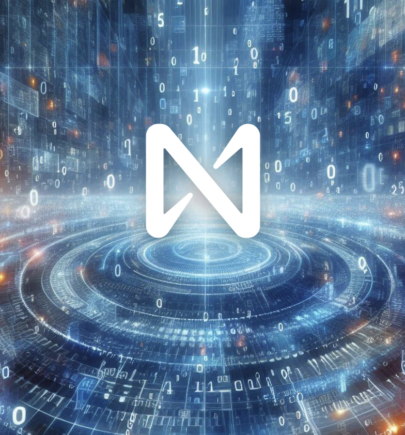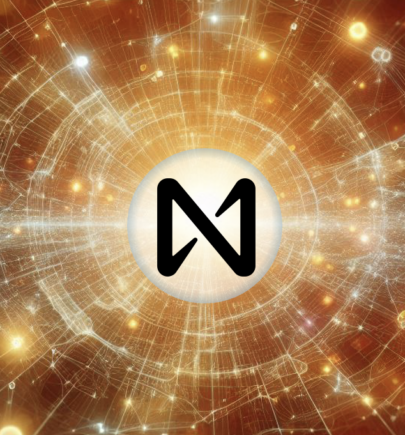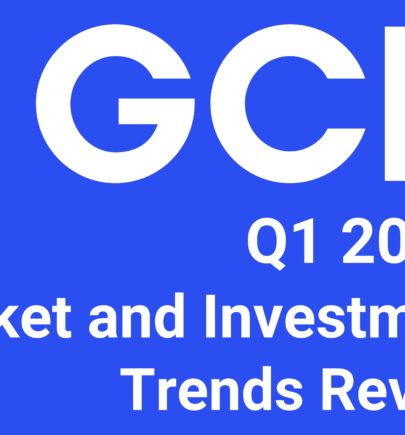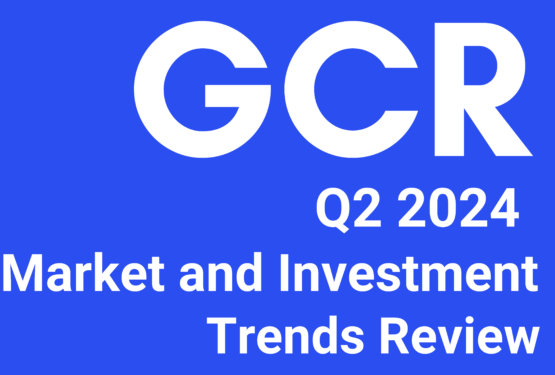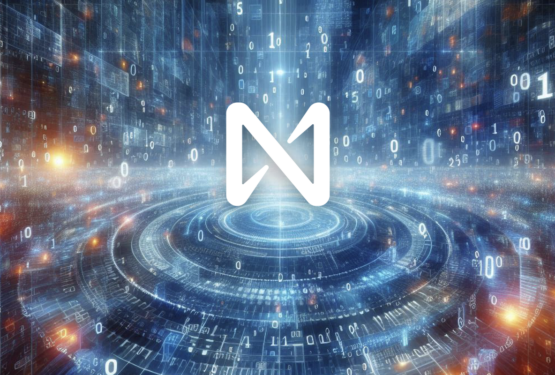Q&A Takeaways with INBlock Partner Li Xiaolai

In late September, Li Xiaolai live-streamed his 2018 new book release conference. The new book is titled “The Road to Financial Freedom“. During the Q&A session, Li confirmed that he is participating in a blockchain project that involves no cryptocurrencies. He also expressed his views on topics such as stablecoins, STOs, and public chain projects during the Q&A session. Here is the lightly summarized Q&A
#1: What do you think are the two most important factors in the development of the blockchain industry?
I think the most important factor in the development of the blockchain industry is the rule of law, that is, let the law restrict or let the law govern whatever is going on in the industry. If there is no law to dictate what can be done and what cannot be done, then there will be a lot of confusion, which is not conducive to advancing the industry. Once the rule of law is fully established, development and growth will naturally follow suit. This is my personal opinion.
#2: STO is a hot topic in recent days. Will it be widely implemented in the near future and what positive effect will it have on blockchain?
STO is very popular in recent days, but it may not be so after a few years. Mindlessly following a hot topic usually doesn’t make much sense to me.
I personally don’t think that STO will have much effect on improving the uptake of blockchain. In theory, STO is not a new concept. Many people have been practicing this for a long time. It’s just an old concept with a newly coined name.
Of course, I am not denying the potential of STO, but I don’t think it is a trend worthy of much attention.
I don’t think that any asset from non-blockchain industry, when incorporated with the concept of cryptocurrency, will become widely accepted. I think it is nothing more than some people’s wishful thinking.
#3: After the USDT plunge on Monday, there were many discussions about stablecoins, and now more and more exchanges are starting to launch various stablecoins or issue their own. How do you view the stablecoin? What is the biggest effect of stablecoins on blockchain assets?
The discussion about stablecoins has always existed. I personally have no conflict with Bitfinex. It also doesn’t matter whether or not I am optimistic about USDT. From a very objective perspective, however, I would say that many stablecoin solutions proposed at this moment are not particularly reliable in my eyes, and even less reliable than USDT.
What is the biggest effect of stable currency on blockchain assets? In fact, stablecoins themselves are also a blockchain asset. Free from geographic limitation, stablecoins are an extremely convenient way to transfer value. These are its specific advantages.
#4: Charlie Munger once said, “The wise ones bet heavily when the world offers them that opportunity. They bet big when they have the odds. And the rest of the time, they don’t. It’s just that simple.” Yet, you don’t recommend an all-in bet in your new book; does your viewpoint come into conflict with Charlie Munger’s way of thinking?
Are we in disagreement? Obviously, the answer is not. Why? Because an all-in bet means that if you have two hundred dollars, you put all two hundred dollars into the bet. This is called an all-in bet because you only have two hundred dollars.
But the so-called heavy bet does not necessarily mean that you have to invest all your two hundred dollars into the bet. In theory, if you have two hundred dollars and your target investment is $10. If you invest $10 in a project, it is already a heavy bet. So fundamentally, there is no conflict between us.
#5: How do you view the slump of U.S. stocks in the past few days? Has the U.S. bull market come to an end? Will U.S. stocks repeat the stock market crash of 2008?
The two-day decline of U.S stocks has triggered a global stock market crash. Not only China, many other countries’ stock markets were also hit hard. In fact, not only was the stock market hit hard but even cryptocurrencies- which were often traded differently from stocks- were heavily impacted.
So how do you interpret the plunge? In fact, it is very simple. The slump simply means that the U.S. is heading into a bear market for stocks and the bull market has come to an end. What else can be the explanation except that severe trouble lies ahead for the U.S. economy and stocks?
Whether or not the U.S. stocks will repeat the stock market crash of 2008, no one knows, no one is able to guarantee the future. However, if one looks at the trend, this round of economic impact is likely to be very severe for the U.S, so everyone should be prepared.
#6: In the Internet era, copyright has often been compromised. I want to know your opinion in terms of intellectual property rights. Will blockchain be the solution for intellectual property management? Are there projects or research currently underway to tackle the issue?
In fact, not only in the internet era, copyright has been compromised even before the advent of the internet. People know that copyright infringement has become almost rampant in the internet era, but they fail to see another fact. In the pre-internet era, copyright infringement would not even be discovered.
In the internet era, intellectual property has surged in sales and intellectual property rights have spread to an unprecedented scale. As a result, the number of copyright infringements you see now will become a lot higher than in the past.
The internet itself does not bring intellectual property rights as much damage as people think. Will blockchain make it better? Obviously, the answer is yes. But this change will take a very long time. It is unlikely that we will see the change in a day or a year.
#7: As you mentioned in the book, individual investors, who lack professional knowledge yet actively engage in risky techniques such as futures contracts or leverages, are doomed. Yet, from the perspective of individual investors, how should they devise their own principles and trading rules in order to resist temptations from the cryptocurrency world?
In fact, we must first make it clear that there are no so-called individual investors and institutional investors. In my view, both individual investors and institutional investors are traders who must be responsible for their own assets. Neither of them should make uninformed decisions at any time. That said, however, the cryptocurrency world is indeed full of alluring traps.
It is very difficult to devise rules to follow. So in the beginning, all traders should simply come up with the most basic rules. For example, in my book “The Road to Financial Freedom,” I mentioned that the money you use to make an investment is the money you can lose. It is the money that even if you never use it, you will still be fine. This is the most important underlying principle. Without this principle, no-one can survive this game of gambling.
#8: What are your plans for the next seven years?
In terms of what I am going to do in the next seven years, I need to spend a lot of time thinking about it. I want to try different things and it will take me a long time to know which industry fits me the best.
It’s not the same as everyone thinks. Usually, when I want to do something, I don’t do it all at once. It takes me a long time.
I think a lot and that’s why every change takes me about a year to two, to complete. I ran around like a chicken with its head cut off. But that’s how you find the way out.
I don’t want to frame my future in any particular way. So, I am also actively seeking new opportunities. Of course, once I start doing something, you will surely see it, because you will always find me on the internet.
#9: The hardest thing to do is to buy and then hold onto the stock. I would like to ask what is your methodology for that?
Since many people find it hard to carry out the buy-and-hold strategy, the most effective method is to simply ignore the cryptocurrency after you make the purchase. Then, you should place your attention to over-the-counter markets to book your big buys. If you do this, you will be able to hold onto the cryptocurrency you bought because there is money to be made on over-the-counter markets. You will no longer be so worried about the price surge or drop of your cryptocurrency. Hence, it’s much easier to carry out the buy-and-hold strategy.
#10: A number of media outlets are fascinated by blockchain news. Yet, the way these outlets function is essentially problematic, making it difficult to reward an article that has content and depth. I am not sure that you have researched these media platforms. Is there a way to solve these existing problems?
Even in a world without blockchain, it is hard to reward an article that has content and depth. In fact, people have different perspectives and it’s hard to define an article as simply good or bad. Sometimes, public judgment is not categorical. An article that you think is good could also anger another person.
Therefore, I believe that it is very difficult to solve this situation with blockchain technology. The biggest problem I have seen is that people who are attracted by these platforms are not those people who want to read or write articles. They are here simply because they want to make money. Therefore, I think these media platforms need time to self-adjust and build a solid foundation for themselves. As such, they will get what they deserve sooner or later.
No matter, if it is a bear market or a bull market, the ability to make money outside the market determines the competitiveness of a trader or an investor.
#11: We are in a bear market right now. How can we prepare ourselves at this moment so that we can make a big gain in the next bull market? Is it profitable to have an automatic investment plan for price-stable cryptocurrencies in the long term?
Will it be a good choice to invest in a price-stable cryptocurrency for a long time? In theory, you have already known that it is a valuable currency not only for now but also for the future. If that’s the case, then your long-term investment is definitely the right decision.
But whether or not you should keep investing in a price-stable cryptocurrency is based on your confidence level. That is to say, are you confident that your investment will overcome both the bear market and the bull market? If yes, the answer is obvious.
#12: In terms of the phenomenon of a real bear market, are there other market indicators? For instance, from my perspective, if people who always take all-in bets stop behaving so boldly, it means that the bear market has basically come to an end. I would like to hear your opinions on this issue.
When is the bull market coming to an end and when is the bear market coming to an end? This is a question that everyone wants to know the answer. Yet, no one can tell you the answer because if he is 100 percent sure, why would he tell others? He will just run away to make money. So, one should judge such things by oneself.
Some people used to say that when the peddler, who sells tea eggs, leaves his business to buy stocks, it means the stock market has come to an end. This is also a way of judging, and what you have mentioned is also a way of judging the bear market.
What I can tell you for sure is that, in general, whether it is a bull market or a bear market, its performance will exceed the expectation of most people. Most people include you and me.
#13: I know that you recommend the native cryptocurrency EOS, but many of my insider friends think EOS is centralized, competing with the concept of decentralization that characterizes blockchain. Could you explain it plainly?
In reality, it is very hard and inefficient to achieve 100 percent decentralization. If you look back on the history of blockchain, all we are trying to do is to find the midpoint. remotepilot101.com In fact, I think EOS represents the midpoint between 100 percent decentralization and usability.
So, I don’t think there is anything wrong with EOS. That said, however, when did you see me recommending for EOS? I did invest in EOS but I rarely recommend it publicly.
And please don’t follow my recommendations. If you listen to my advice and make a profit, I won’t get any financial return. If you lose money, you will probably put a curse on me. So, you really have to make your own decisions.
#14: Could you talk about how did you come up with the concept of “cutting leeks”? In particular, how did you polish an ambiguous concept and turn it into something meaningful, accurate and necessary? What did you focus on while sifting through the unnecessary elements in order to discover the essence of the concept?
It’s very difficult to define a concept and come up with a definition of your own. It takes a long time to think. For example, like the concept of “cutting leeks” (the term means using celebrity status to hype up crypto projects and “harvest” newbie investors), if the previous rumor mill did not go into overdrive, I would not even have thought about this new term.
As the rumor about me continued to gain momentum, I started to think about this issue critically and eventually came up with this new definition, that is, those people who treat non-zero-sum games as zero-sum games are likely to be the real “leeks.”
In my book, I listed a variety of embarrassing behaviors I have seen in the cryptocurrency world. It has become a habit of mine to devise new terms and definitions. I realized at some point that concepts used by people are ambiguous, messy and wrong. I became dissatisfied with the application of those concepts. That’s when I decided to come up with my own terms and definitions, that’s it.
#15: Jack Ma announced that he would focus his efforts on education after retiring from Alibaba. You have been very successful in New Oriental and are also ready to change career. Will you consider returning to the education industry or investing in education-related projects in the future?
I did say that I am going to switch careers. But this change will take a long time. Also, it is not possible for me to completely extricate myself from the blockchain industry. Hence, I may not leave the blockchain industry because this is the biggest and most exciting trend that I can find so far.
From the perspective of an investor, I don’t think the education industry is a profitable field with high growth potential. In comparison, there are a variety of industries with higher growth rates. Hence, the education industry is not necessarily a good choice for investment. That said, it’s hard to say at this moment whether or not I will make an investment in the education industry.
In fact, I may have never left the education industry. As you see, I am writing books and doing public lectures. All of these are related to education.
#16: What will be the next breakthrough technology?
I don’t think there is any so-called “next breakthrough technology.” You should not think that technology is constantly breaking through. For example, if you think about the internet’s development over the years, its most basic application protocol, the Hypertext Transfer Protocol (HTTP), hasn’t changed much. HTTP developed its basic functions many years ago and everyone has been using it ever since.
It’s like building a house with bricks. No matter what kind of house you want to build, bricks are just bricks and they do not need any breakthrough, right? The blockchain technology is very similar to this analogy. The technology itself is in full bloom at this moment and it does not need many changes. The key question is, what else we can build on top of such simple but effective technologies? In terms of what is the next breakthrough technology, I rarely think about it.
#17: My first question is, considering the number of exciting blockchain ideas in foreign countries; can we test out some of these proposals in China? My second question is, what do you think is the most worthwhile area for blockchain development?
In the blockchain world, I don’t think it is worthwhile to bring foreign ideas back to China; neither will it be very effective in the long run. In the pre-internet era, it may be very useful. But after the internet boom, it is no longer very helpful to do so. In fact, since blockchain is the true enabler of globalization than the internet, there is no need to introduce foreign ideas to China.
The second question is, what is the most worthwhile area for blockchain development? I have said previously that in order for blockchain to grow, we need to put more efforts into improving its public affairs sector, even though many people think we should focus on its business sector. On the other hand, the public affairs industry also needs help from the blockchain technology.
#18: You mentioned the importance of the investment cycle and trends in your book, saying that the real trend can only be seen after at least two investment cycles. Yet, after two investment cycles, if the upward trend has almost reached its peak, wouldn’t investors miss the chance to make a profit? I would like to ask that as a newcomer, how could I take into consideration the investment cycle and trends while also catching the upward market indices at the right moment?
In fact, the most advantageous strategy is to carry out a long-term investment. The core of this strategy is that investors must be able to predict the future and let time verify their ideas. After multiple investment cycles, you will be able to see whether or not your idea is correct.
Yet, if it is within a half cycle or one cycle, an incorrect idea or decision can also generate a seemingly good result. Things will be rather misleading and chaotic.
If you are afraid of missing an investment opportunity, it means that you are not really qualified for investment. You only focus on the present moment and fail to see the future.
People who see the future are not necessarily interested in any investment opportunity that is rumored to generate the greatest return, given that it is nothing more than a fantasy.
#19: Financial Companies are being continuously added to the 2018 Fortune 500 List, what do you think about that? In the future, will blockchain technology overturn the financial industry or be integrated into it?
Why does the financial industry account for such a large proportion? Because the financial industry is also a market and the subject of exchange in this market is money itself. In today’s digital world, money has the fastest transaction speed. Hence, its market share is also the largest. This should be a straightforward way to interpret the phenomenon.
Will blockchain technology overturn the financial industry? This is a very naive point of view. After all, blockchain is just a growing list of records with a distributed database. In the past few years, many people have argued that bitcoin would disrupt many industries. Have you ever seen that?
At least I haven’t seen it. Even a few years ago, I often told people that blockchain was not going to disrupt anything. We should think of blockchain as a new technology that has the potential to grow and evolve.
#20: I want to ask that, in your perspective, what are the characteristics of an industry with high growth potential? In addition to making an investment, should young people enter these industries while choosing their career?
All industries with high growth rates have a common feature, that is, they can improve the efficiency of the existing world.
Let’s take the example of the internet. Its emergence has greatly improved our efficiency. Blockchain technology is the same. Anything that can bring efficiency to the world will have a high growth rate in the future. Then, is it necessary for young people to enter such an industry? You should not ask whether or not it is necessary. If you find an industry with a very high growth rate, you should absolutely enter it. It is really your best choice.
The problem is, before the final result appears, you have no way to be 100% sure whether or not it is indeed an industry with high growth potential.
#21: Can you share your understanding of the token-free blockchain? A blockchain without tokens is a blockchain without incentives. Given the token-free blockchain, how will token-based incentives function?
A token-free blockchain does not mean that there are no tokens in the system. It simply means that the system does not have to have tokens. The project I am doing right now is about token-free blockchain.
If we think about blockchain from a very abstract perspective, it is a database technology that cannot be altered. Hence, as long as we keep the database technology, it is not necessary to have tokens.
In fact, most public affairs industries require such a blockchain technology that does not involve tokens. In terms of token-based incentives, you should not think that only tokens can motivate people. That’s simply not the case. In fact, you can think of a lot of scenarios where people behave the same regardless of monetary incentives. Sometimes, monetary incentives can even undermine performance.
#22: Not long ago, you said that you would no longer make any personal investments. Are you still responsible for the INB investment?
I only said that I personally would not invest in any project. The purpose was to make sure that my name would not appear online without my consent or even awareness. In the future, if anybody says that a project is invested in by Li Xiaolai, he must be a liar.
#23: You just said that USDT is more reliable than other stablecoins. Are you aware of USDT’s most recent price drop? In your perspective, what are the main causes of that?
To be honest, I didn’t pay much attention because I didn’t think it was a big concern. Of course, many people considered it as a big issue. USDT has gained widespread speculation ever since its issuance. Is this cryptocurrency doing well? I have no way of knowing it. Yet, since its price drop does not affect the blockchain industry, I don’t feel it is a big deal.
#24: Do you think that the investment rule you are talking about right now will be iterated in the future? If so, why?
Most of my investment principles are unlikely to be iterated because I follow the simplest and most basic rules, which is also a way to make myself accountable.


